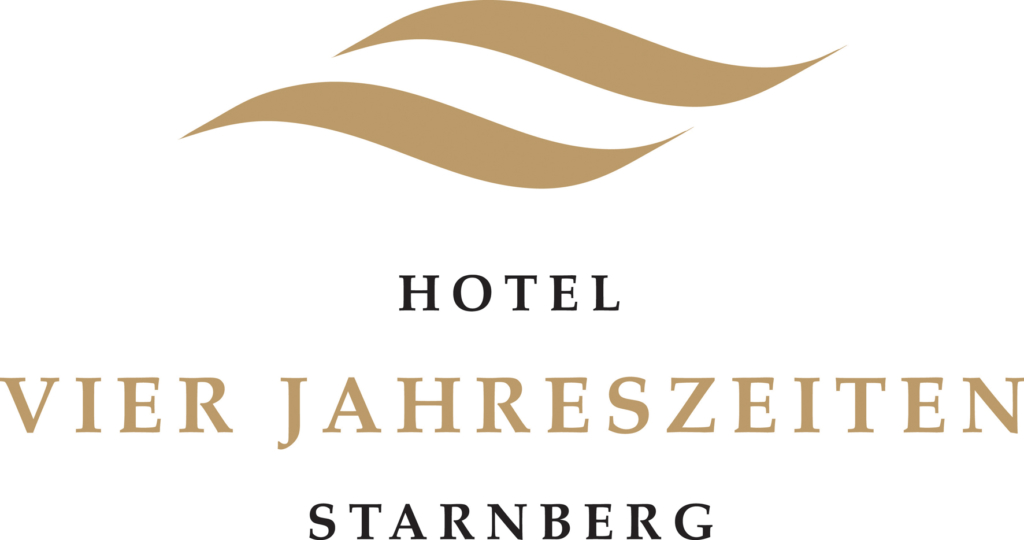In today’s fast-paced and ever-evolving hospitality industry, staying competitive is crucial for hotels to thrive. With new trends, technologies, and guest expectations emerging, hoteliers must adopt innovative strategies to set themselves apart from the competition.
So, how can hotels stay competitive in the hospitality industry? Well, let’s find out.
1. Embrace Personalization for Memorable Guest Experiences
In an era where guests seek personalized experiences, hotels can differentiate themselves by tailoring services to individual preferences. Utilizing guest data and technology, hotels can curate unique experiences that cater to the specific needs and desires of each guest, enhancing guest satisfaction and fostering loyalty.
-
Hotels must gather and analyze historical data to analyze behavior
Personalization starts from the moment a guest engages with the hotel, be it through the website, mobile app, or online booking platform. By gathering and analyzing data on past stays, preferences, and behavior, hotels can anticipate guests’ needs and create tailor-made offers and recommendations. This level of personalization goes beyond addressing guests by name; it encompasses customizing room amenities, suggesting relevant local experiences, and even remembering dietary restrictions.
-
Moreover, technology plays a significant role in enabling personalization.
Advanced customer relationship management (CRM) systems and artificial intelligence (AI) tools can process vast amounts of data to provide valuable insights into guest preferences. For instance, AI-powered chatbots can engage with guests in real-time, understanding their queries and offering personalized responses, further enriching the guest experience.
-
Strike the right balance
To achieve meaningful personalization, hotels must strike a balance between leveraging data to create tailored experiences and respecting guest privacy. Being transparent about data usage and seeking explicit consent from guests for data collection are essential aspects of a successful personalization strategy.
2. Leverage Technology to Optimize Operations
Efficient operations are essential to remain competitive. Embracing technology solutions such as property management systems, revenue management software, and data analytics can streamline processes, improve resource allocation, and boost overall operational efficiency.
-
Use a PMS
The heart of any hotel’s operations lies in its property management system (PMS). A modern PMS goes beyond basic guest check-in and check-out functionalities; it acts as a centralized platform to manage reservations, housekeeping, billing, and more. Integration with other hotel systems, such as the point-of-sale (POS) system and CRM, enables seamless data flow, reducing manual errors and streamlining operations.
-
Revenue management system is another critical tool for hotels to optimize revenue.
By analyzing historical and real-time data on demand, competitor rates, and market trends, revenue management systems can dynamically adjust room prices to maximize revenue and occupancy. Implementing the right revenue management strategy ensures that hotels can sell the right room at the right price to the right customer at the right time.
-
Data analytics plays a pivotal role in making informed decisions.
By analyzing data from various sources, such as guest feedback, social media, and online reviews, hotels can identify trends and pain points, enabling them to make data-driven improvements to their services. Additionally, hotel data analytics can assist in predictive maintenance, optimizing energy consumption, and enhancing overall sustainability efforts.
-
Furthermore, automation is a game-changer in hotel operations.
Automating routine tasks like email communication, housekeeping schedules, and guest requests not only saves time but also allows staff to focus on delivering exceptional guest experiences.
3. Prioritize Sustainability and Eco-Friendly Practices
Eco-conscious travelers increasingly seek sustainable hotels and accommodations. Hotels can implement green initiatives, reduce waste, and embrace energy-efficient practices to attract environmentally conscious guests and align with evolving societal values.
Sustainability is not just a trend but a pressing need for the future of the hospitality industry. Many travelers actively seek hotels that demonstrate a commitment to environmental responsibility and social impact. Implementing eco-friendly practices not only appeals to these eco-conscious guests but also reduces operating costs and enhances the hotel’s brand reputation.
Hotels can take several steps to prioritize sustainability:
- Adopt energy-efficient practices: Implement energy-saving measures such as LED lighting, smart thermostats, and motion sensors to reduce energy consumption.
- Embrace recycling and waste reduction: Encourage recycling and composting initiatives throughout the property. Minimize single-use plastics and opt for eco-friendly alternatives.
- Engage in responsible sourcing: Partner with local suppliers and source sustainable products, including organic and locally produced amenities and food items.
- Educate and involve guests: Raise awareness about sustainability efforts among guests and involve them in conservation programs or charitable initiatives.
By promoting their sustainable travel initiatives through marketing channels and online platforms, hotels can attract a growing segment of eco-conscious travelers while making a positive impact on the environment.
4. Stay Agile and Adapt to Market Trends
The hospitality industry is subject to constant change. Hotels that can swiftly adapt to emerging market trends and guest demands will be better equipped to seize opportunities and overcome challenges, ensuring long-term success. Market trends in the hospitality industry are driven by changing guest preferences, advancements in technology, global events, and shifts in travel behavior. For hotels to stay competitive, agility and adaptability are crucial.
-
Hotels must continuously monitor industry trends and keep an eye on competitors’ strategies.
Analyzing market data and customer feedback can reveal valuable insights into guest expectations and identify areas for improvement. A proactive approach to addressing guest needs ensures that hotels remain relevant and attractive to their target audience.
-
Additionally, encouraging a culture of innovation can foster a spirit of continuous improvement.
Embracing innovation does not necessarily mean implementing the latest technologies; it can also involve creative approaches to problem-solving, unique guest experiences, and forward-thinking service offerings.
-
Moreover, hotels should be prepared to pivot their strategies and operations based on market shifts.
For example, during the COVID-19 pandemic, many hotels swiftly adapted their services to cater to the rise in remote work and “workcations.” Being responsive to changing circumstances demonstrates the hotel’s commitment to guest satisfaction and positions it as a dependable and customer-centric choice.
5. Invest in Employee Training and Development
A well-trained and motivated staff is invaluable. Investing in employee training, empowerment, and recognition fosters a positive work culture that translates into superior guest service and an exceptional overall experience.
-
Hotels must invest in operational trainings of the employees
Hotels are built on the foundation of human interactions, and the expertise and dedication of the staff significantly impact the guest experience. Providing comprehensive training programs equips employees with the skills and knowledge needed to deliver top-notch service.
-
Hotels must also invest in soft skill trainings
Trainings should not be limited to operational aspects but should also encompass soft skills such as communication, problem-solving, and emotional intelligence. Empowering employees to make decisions and resolve guest issues fosters a sense of ownership and accountability, leading to higher guest satisfaction and loyalty.
-
Recognizing and rewarding outstanding employee performance is equally crucial.
A culture of appreciation encourages employees to go the extra mile and take pride in their work. Employee recognition programs, incentive schemes, and career growth opportunities demonstrate that the hotel values its staff and invests in their success.
-
Furthermore, fostering a positive work environment promotes employee retention and reduces turnover rates.
Happy and engaged employees are more likely to remain with the hotel long-term, ensuring consistent service quality and a strong sense of teamwork.
6. Capitalize on Guest Reviews and Feedback
Positive guest reviews and word-of-mouth referrals are potent marketing tools. Hotels must actively engage with guest feedback, address concerns, and leverage positive reviews to build credibility and trust among potential guests.
Guest reviews and ratings heavily influence travelers’ booking decisions. Positive reviews not only attract potential guests but also play a crucial role in search engine rankings and online visibility.
To effectively capitalize on guest reviews, hotels should:
-
Encourage guest feedback
Actively solicit guest reviews through post-stay surveys, email follow-ups, or on-site feedback stations. Offering incentives, such as loyalty points or discounts, can encourage guests to share their experiences.
-
Respond to reviews promptly
Acknowledge and respond to guest reviews, both positive and negative. Addressing negative feedback with empathy and a willingness to resolve issues demonstrates the hotel’s commitment to guest satisfaction.
-
Monitor online reputation
Regularly monitor review platforms and social media channels to stay informed about guest feedback and sentiment. Addressing concerns in a timely manner helps prevent potential negative impacts on the hotel’s reputation.
-
Showcase guest testimonials
Feature positive guest reviews on the hotel’s website, social media pages, and marketing materials. Authentic guest testimonials serve as powerful social proof and build trust with potential guests.
However, managing online reviews extends beyond the hotel’s direct channels. Hotels must also keep a close eye on reviews posted on third-party booking platforms and travel review sites. Responding to reviews on these platforms demonstrates a commitment to guest service and encourages prospective guests to choose the hotel.
7. Implement a Comprehensive Digital Marketing Strategy
An effective digital marketing strategy can significantly impact a hotel’s visibility and reach. Utilizing social media, search engine optimization (SEO), and targeted online advertising can help hotels attract new guests and retain existing ones.
In today’s digital age, an online presence is paramount. A well-crafted digital marketing strategy enables hotels to connect with potential guests at various touchpoints along the customer journey.
- Social Media ManagementSocial media is a powerful tool for engaging with audiences and showcasing the hotel’s unique offerings. Hotels should identify the social media platforms most popular among their target audience and create engaging content that resonates with potential guests. Visual content, such as images and videos showcasing the hotel’s amenities and experiences, is particularly effective in capturing attention.
-
Search Engine Optimization (SEO)
SEO is vital to ensure the hotel’s website ranks high in search engine results. By optimizing website content with relevant keywords, improving website speed, and enhancing user experience, hotels can attract organic traffic and increase online visibility.
-
Paid Advertising
Paid advertising, such as pay-per-click (PPC) campaigns, can complement organic efforts and target specific audience segments. With targeted online advertising, hotels can reach potential guests based on demographics, interests, and search behavior.
-
Email Marketing
Email marketing remains an effective tool for engaging with past guests and driving direct bookings. Personalized email campaigns, tailored to the guest’s preferences and past interactions, can nurture leads and foster guest loyalty.
-
Campaign Perfomance Analysis
To leverage digital marketing effectively, hotels must track and analyze campaign performance regularly. Monitoring key performance indicators (KPIs) such as website traffic, conversion rates, and click-through rates provides valuable insights for optimizing marketing efforts.
Read More: The Complete Guide to Hotel Digital Marketing
8. Forge Strategic Partnerships
Collaborating with local businesses, tourist attractions, and travel agencies can open new avenues for guest acquisition and promote cross-promotional opportunities, enriching the guest experience.
-
Hotels can partner with local businesses
Strategic partnerships can be mutually beneficial for hotels and their partners. By partnering with local businesses, hotels can offer guests unique experiences, access to local events, and exclusive discounts. For example, partnering with nearby restaurants, spas, or cultural attractions can enhance the hotel’s offering and appeal to guests seeking immersive experiences.
-
Collaborations may be forged with travel sellers
Collaborating with travel agencies, tour operators, and online travel agencies (OTAs) can extend the hotel’s reach and attract travelers who prefer bundled packages. Package deals that include accommodation and experiences can be attractive to certain segments of travelers, such as families or adventure seekers.
-
Hotels can also explore partnerships with corporate entities for business travel arrangements.
Offering special rates or amenities for corporate clients can foster repeat business and establish the hotel as a preferred choice for business travelers.
-
Additionally, hotels can partner with local tourism boards
Hotels can participate in destination marketing efforts to collectively promote the destination and its attractions. Joining forces with local tourism boards and chambers of commerce can increase the destination’s visibility and draw travelers seeking diverse experiences.
Strategic partnerships not only increase the hotel’s exposure but also build a network of allies who can refer guests and share resources. Furthermore, partnerships with reputable brands can enhance the hotel’s credibility and attract a broader audience.
9. Offer Special Promotions and Packages
Hotels can entice guests by creating exclusive offers, packages, and loyalty programs. These incentives can drive bookings, encourage repeat visits, and foster a sense of appreciation among guests.
Special promotions and packages cater to different guest segments and occasions, creating opportunities for hotels to attract diverse demographics. Whether it’s a weekend getaway package for couples, a family-friendly package with kids’ activities, or a seasonal promotion, tailored offers pique the interest of potential guests.
Some popular promotional strategies include:
- Early bird discounts: Offering reduced rates for guests who book well in advance encourages early reservations and secures bookings.
- Last-minute deals: Targeting last-minute bookers with discounted rates can fill vacant rooms and drive additional revenue.
- Free upgrades or add-ons: Providing complimentary room upgrades, breakfast, or amenities can entice guests and enhance their overall experience.
- Loyalty programs: Establishing a loyalty program rewards repeat guests with exclusive benefits, such as discounts, upgrades, or personalized services.
When designing promotions, hotels must consider the target audience, their preferences, and booking patterns. A data-driven approach to understanding guest behavior can help hotels create promotions that resonate with potential guests and drive conversions.
Special promotions can be promoted through the hotel’s website, email marketing campaigns, and social media channels. Highlighting the limited availability of offers can create a sense of urgency, motivating guests to take advantage of the deals.
10. Monitor and Benchmark Competitors
Continuous monitoring of competitors’ strategies, pricing, and offerings allows hotels to identify strengths and weaknesses and adjust their own approach to stay competitive.
Benchmarking against competitors provides hotels with valuable insights into industry best practices and market trends. Regularly analyzing competitor pricing, promotional campaigns, and guest reviews enables hotels to gauge their own performance and identify areas for improvement.
Competitor analysis should encompass a range of factors:
- Pricing: Understand how competitors price their rooms based on factors like demand, seasons, and special events. Evaluate whether the hotel’s pricing aligns with its positioning and target audience.
- Guest Experience: Analyze guest reviews and feedback on various review platforms to identify common guest pain points and areas of excellence. Utilize this information to enhance the hotel’s service offerings.
- Marketing Strategies: Monitor competitors’ digital marketing efforts, social media engagement, and online advertising to gain insights into successful marketing tactics.
Understanding the competitive landscape also helps hotels identify potential gaps in the market and explore untapped opportunities. By differentiating themselves from competitors, hotels can create a unique selling proposition (USP) that sets them apart in the minds of potential guests.
To stay ahead, hotels must continuously update their knowledge about the competitive landscape. Tools and services that provide competitive intelligence can streamline this process and deliver real-time data on market trends and competitor activities.
The Path to Sustained Competitiveness in Hospitality
In a rapidly evolving hospitality landscape, hotels must embrace innovation, prioritize guest satisfaction, and stay adaptable to stay competitive. By harnessing technology, personalizing experiences, and implementing guest-centric strategies, hotels can not only thrive but also lead the way in providing exceptional hospitality experiences.
Staying ahead in the competitive hospitality industry requires a multifaceted approach that encompasses guest engagement, operational excellence, sustainability, and smart marketing. As hotels navigate the dynamic landscape, they must continuously innovate and evolve to meet the ever-changing needs and expectations of travelers.
 Deutsch
Deutsch Português
Português Italiano
Italiano Espanol
Espanol čeština
čeština ไทย
ไทย Français
Français



